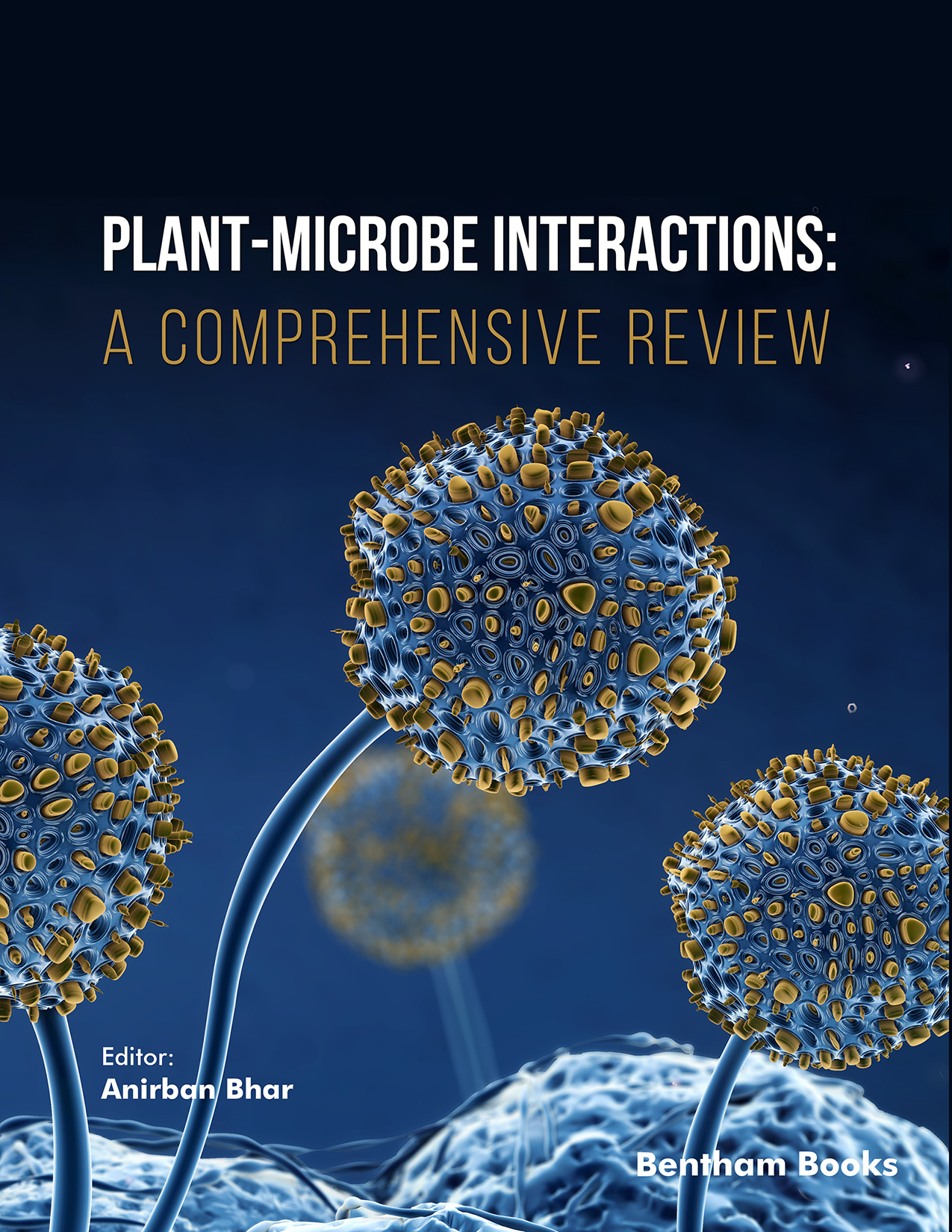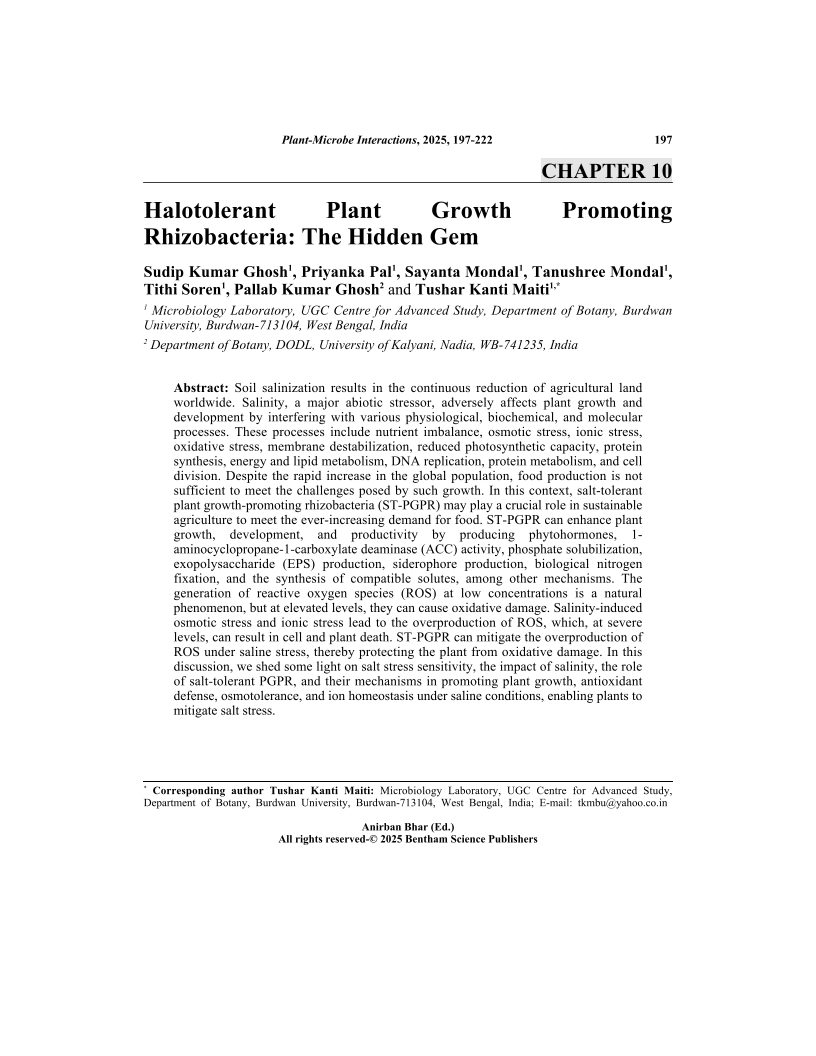Halotolerant Plant Growth Promoting Rhizobacteria: The Hidden Gem

- Authors: Sudip Kumar Ghosh1, Priyanka Pal2, Sayanta Mondal3, Tanushree Mondal4, Tithi Soren5, Pallab Kumar Ghosh6, Tushar Kanti Maiti7
-
View Affiliations Hide Affiliations1 Microbiology Laboratory, UGC Centre for Advanced Study, Department of Botany, Burdwan University, Burdwan 713104, West Bengal, India 2 Microbiology Laboratory, UGC Centre for Advanced Study, Department of Botany, Burdwan University, Burdwan-713104, West Bengal, India 3 Microbiology Laboratory, UGC Centre for Advanced Study, Department of Botany, Burdwan University, Burdwan-713104, West Bengal, India 4 Microbiology Laboratory, UGC Centre for Advanced Study, Department of Botany, Burdwan University, Burdwan-713104, West Bengal, India 5 Microbiology Laboratory, UGC Centre for Advanced Study, Department of Botany, Burdwan University, Burdwan-713104, West Bengal, India 6 Department of Botany, DODL, University of Kalyani, Nadia, WB-741235, India 7 Microbiology Laboratory, UGC Centre for Advanced Study, Department of Botany, Burdwan University, Burdwan-713104, West Bengal, India
- Source: Plant-Microbe Interactions: A Comprehensive Review , pp 197-222
- Publication Date: March 2025
- Language: English
Halotolerant Plant Growth Promoting Rhizobacteria: The Hidden Gem, Page 1 of 1
< Previous page | Next page > /docserver/preview/fulltext/9789815324150/chapter-10-1.gif
Soil salinization results in the continuous reduction of agricultural land worldwide. Salinity, a major abiotic stressor, adversely affects plant growth and development by interfering with various physiological, biochemical, and molecular processes. These processes include nutrient imbalance, osmotic stress, ionic stress, oxidative stress, membrane destabilization, reduced photosynthetic capacity, protein synthesis, energy and lipid metabolism, DNA replication, protein metabolism, and cell division. Despite the rapid increase in the global population, food production is not sufficient to meet the challenges posed by such growth. In this context, salt-tolerant plant growth-promoting rhizobacteria (ST-PGPR) may play a crucial role in sustainable agriculture to meet the ever-increasing demand for food. ST-PGPR can enhance plant growth, development, and productivity by producing phytohormones, 1- aminocyclopropane-1-carboxylate deaminase (ACC) activity, phosphate solubilization, exopolysaccharide (EPS) production, siderophore production, biological nitrogen fixation, and the synthesis of compatible solutes, among other mechanisms. The generation of reactive oxygen species (ROS) at low concentrations is a natural phenomenon, but at elevated levels, they can cause oxidative damage. Salinity-induced osmotic stress and ionic stress lead to the overproduction of ROS, which, at severe levels, can result in cell and plant death. ST-PGPR can mitigate the overproduction of ROS under saline stress, thereby protecting the plant from oxidative damage. In this discussion, we shed some light on salt stress sensitivity, the impact of salinity, the role of salt-tolerant PGPR, and their mechanisms in promoting plant growth, antioxidant defense, osmotolerance, and ion homeostasis under saline conditions, enabling plants to mitigate salt stress.
-
From This Site
/content/books/9789815324150.chapter-10dcterms_subject,pub_keyword-contentType:Journal -contentType:Figure -contentType:Table -contentType:SupplementaryData105

